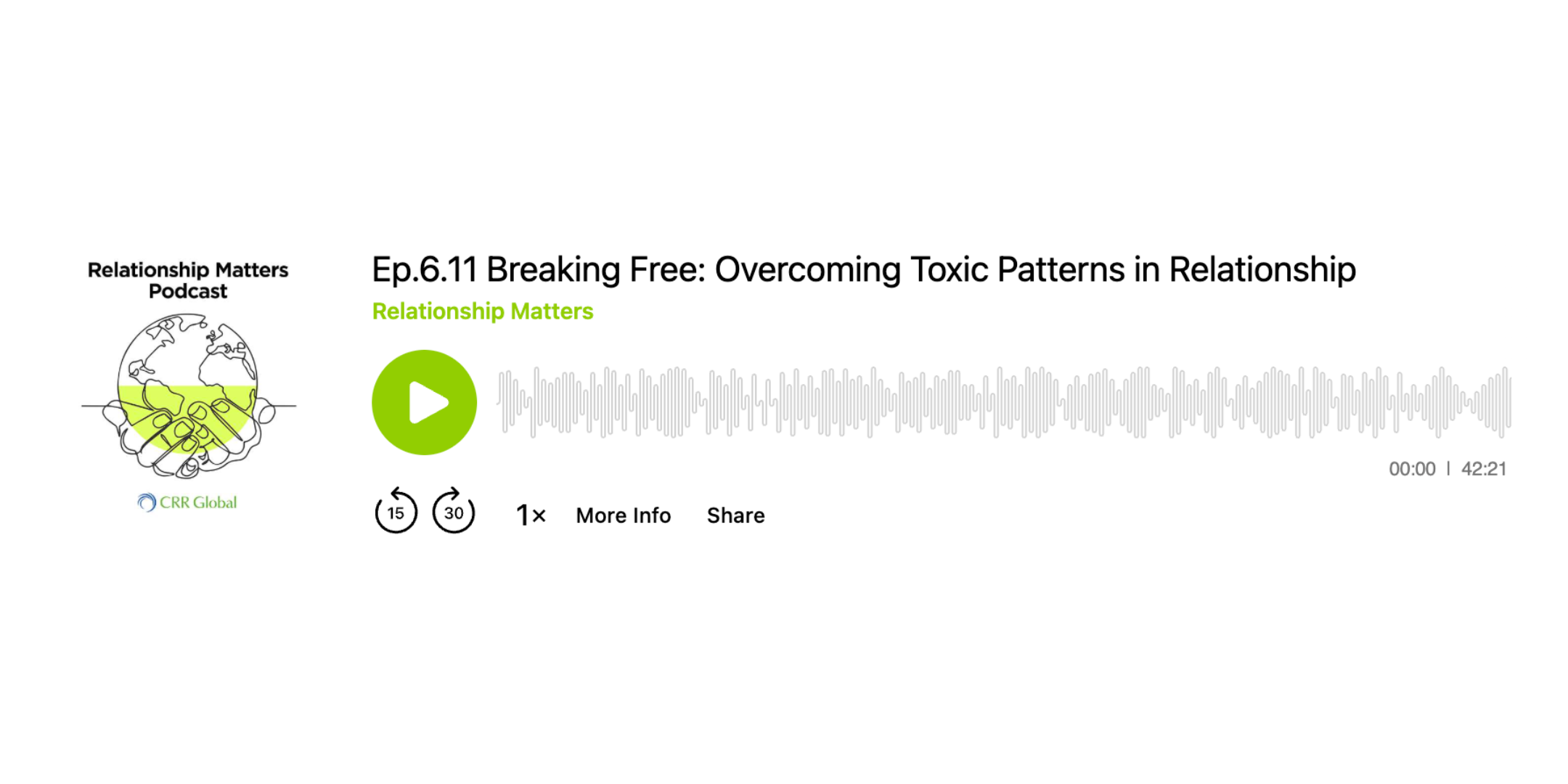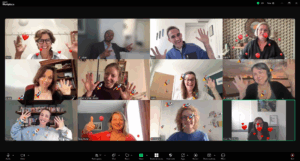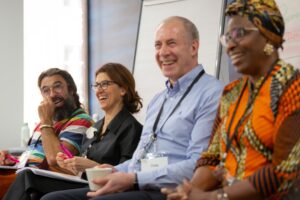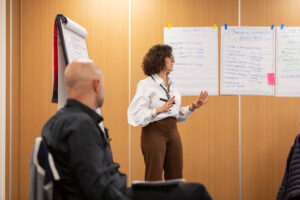Relationships are at the core of our personal and professional lives. Whether in romantic partnerships, friendships, families, or workplace teams, the way we communicate determines the quality of our connections. But what happens when unhealthy communication patterns take hold?
In episode 6.11 of The Relationship Matters Podcast, hosts Katie Churchman and guest Nairy McMahon dive into the complex world of toxic relationship patterns—how they form, why they persist, and, most importantly, how we can break free from them. In this blog, we explore the key themes of the episode and provide insights into how we can cultivate healthier, more conscious relationships.
Understanding Toxic Communication Patterns
Toxic communication is often ingrained in relationships long before we recognise it. It manifests through repeated, unhelpful patterns that harm connection and trust. In the podcast, the hosts highlight some of the most common toxic behaviours:
- Criticism – Attacking a person’s character rather than addressing a behaviour.
- Contempt – Expressing disrespect, sarcasm, or mockery, which erodes trust.
- Defensiveness – Rejecting responsibility and shifting blame instead of acknowledging issues.
- Stonewalling – Shutting down communication altogether, avoiding confrontation, and disengaging emotionally.
These patterns often emerge from learned behaviours, past experiences, and emotional triggers. Over time, they can become ingrained in the way we relate to others, creating cycles of conflict that feel impossible to break.
Recognising and Raising Awareness of Unhealthy Patterns
One of the most powerful steps towards breaking toxic cycles is awareness. Many of us fall into these patterns unconsciously, not realising their impact until relationships begin to suffer. Some key ways to increase awareness include:
- Identifying repeated conflicts: Noticing if the same arguments resurface without resolution.
- Observing emotional responses: Paying attention to feelings of frustration, resentment, or disconnection.
- Practising self-reflection: Asking, How do I contribute to this pattern?
By recognising these behaviours in ourselves and our relationships, we open the door to change.
Creating Space for Change
Once awareness is in place, the next step is to consciously disrupt the cycle. Churchman and McMahon emphasise the importance of creating space for transformation, which requires both self-awareness and a willingness to change. Some practical ways to do this include:
- Pausing before reacting: Taking a moment to reflect before responding can prevent escalation.
- Shifting from blame to ownership: Instead of pointing fingers, acknowledge personal responsibility in the dynamic.
- Engaging in open dialogue: Honest and compassionate conversations about the relationship’s challenges foster connection.
Owning Your Desires in Relationships
A crucial aspect of healthy relationships is learning to express personal needs and desires without guilt or fear. Many of us struggle to voice what we truly want, either because of past conditioning or fear of conflict. However, suppressing these needs often leads to frustration and resentment.
Key steps to owning your desires include:
- Naming your needs clearly: Instead of expecting others to “just know,” communicate openly.
- Setting and upholding boundaries: Healthy boundaries create clarity and protect emotional well-being.
- Recognising that needs are valid: Everyone deserves to have their needs heard and considered.
Practical Tools for Conscious Communication
The podcast highlights essential tools to foster healthier interactions, helping us replace toxic patterns with constructive, conscious communication. These include:
1. Active Listening
True listening isn’t just about hearing words—it’s about understanding emotions, perspectives, and intentions. Active listening involves:
- Giving full attention to the speaker.
- Reflecting back what was heard to ensure understanding.
- Asking open-ended questions to explore deeper insights.
2. Non-Violent Communication (NVC)
Developed by Marshall Rosenberg, NVC is a method of expressing feelings and needs without blame or judgement. It follows four key steps:
- Observing a situation without evaluation.
- Naming feelings honestly.
- Expressing needs clearly.
- Making requests rather than demands.
3. Conflict Resolution Strategies
Not all conflict is bad—when handled skillfully, it can lead to growth and deeper connection. Some key strategies include:
- Viewing conflict as an opportunity for understanding.
- Finding shared values and goals.
- Using alignment coaching techniques to shift perspectives.
Insights from the Hosts
Throughout the podcast, both Churchman and McMahon share personal experiences and reflections on overcoming unhelpful communication habits. They highlight how even the most ingrained patterns can change when approached with curiosity, patience, and self-compassion.
Why This Matters in 2025 and Beyond
In a world where technology, work dynamics, and social interactions are evolving rapidly, relational intelligence is more critical than ever. Leaders, teams, and individuals must learn to navigate complexity, build resilient relationships, and create environments where people feel heard, valued, and empowered.
This is where systemic coaching methodologies like ORSC (Organisation and Relationship Systems Coaching) play a transformational role. ORSC equips professionals with the tools to:
- Facilitate healthier team dynamics.
- Strengthen personal and professional relationships.
- Navigate conflict with emotional intelligence.
CRR UK’s ORSC training helps individuals move beyond transactional leadership towards a relational way of leading, coaching, and facilitating—one that fosters genuine connection and long-term success.
Join Us for an In-Person Community Event on 13th May
To celebrate International Coaching Week, we’re hosting a special in-person community event on 13th May. This gathering will provide an opportunity to connect with like-minded professionals, discuss transformational coaching methods, and explore new ways to cultivate conscious relationships.
If you’re passionate about deepening your coaching practice, enhancing leadership skills, or simply fostering healthier relationships, this event is for you.
Final Thoughts
Breaking free from toxic patterns isn’t about perfection—it’s about progress. By becoming aware of unhelpful behaviours, creating space for change, and committing to conscious communication, we can cultivate healthier, more fulfilling relationships in every area of life.
If this topic resonated with you, listen to the full “Breaking Free: Overcoming Toxic Patterns in Relationships” podcast episode for deeper insights. And if you’re ready to take your relational intelligence to the next level, explore our ORSC training to develop the skills needed to transform relationships at work and beyond.






